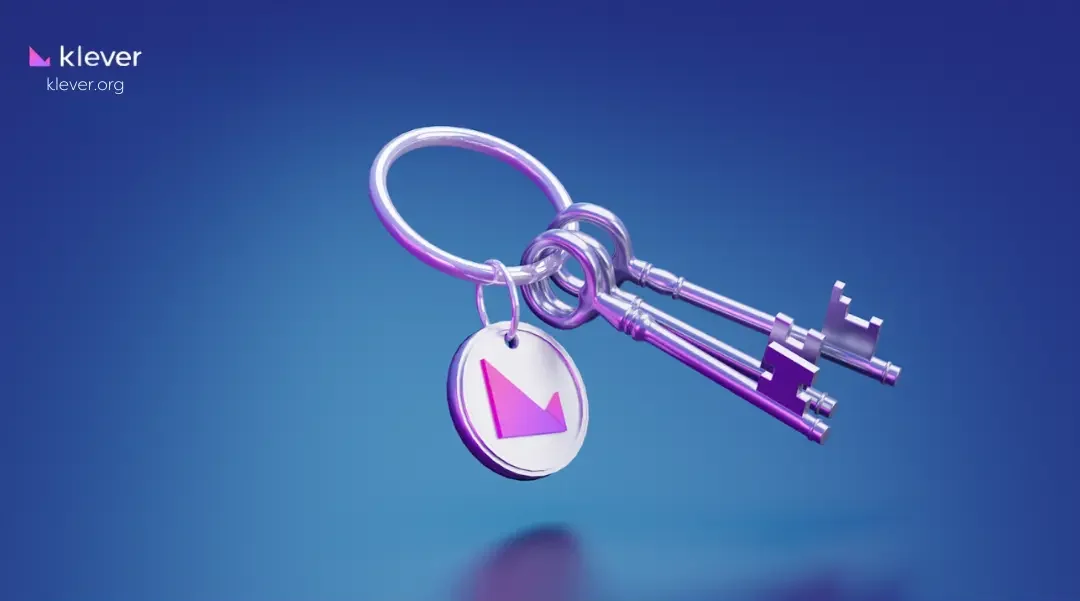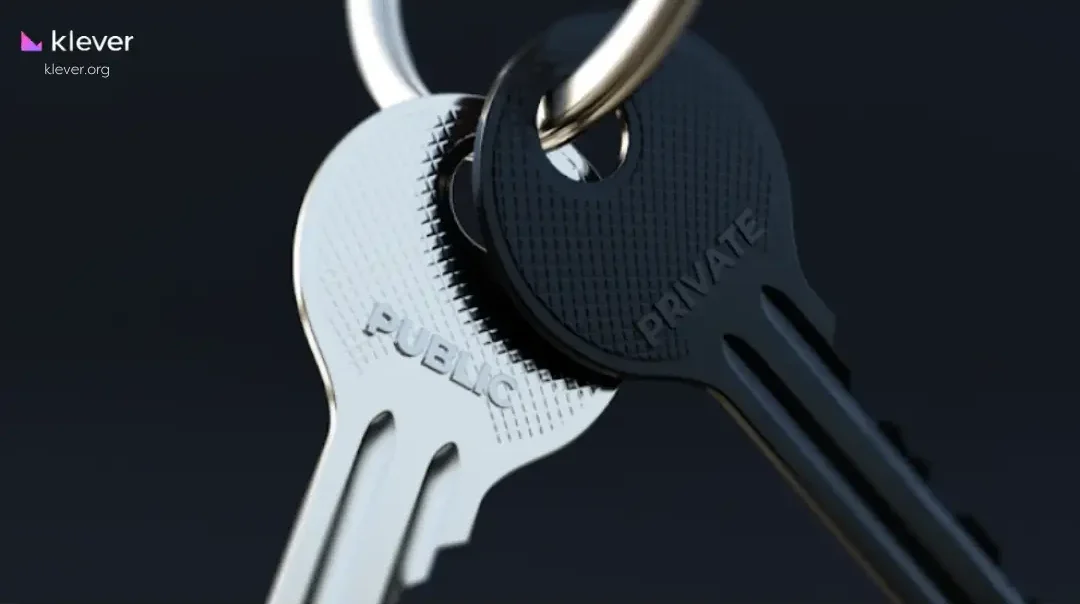
In the world of cryptocurrencies, your private key is akin to the master key to your digital vault. Mastering the art of private key management is essential for anyone looking to ensure the safety and integrity of their digital wealth in the ever-expanding cryptocurrency landscape.
Table of Contents
What is a Private Key?

In the world of cryptocurrencies, a private key is a crucial component that ensures the security and ownership of digital assets. It is a long, randomly generated string of alphanumeric characters that acts as a password, giving its holder the ability to access and manage their cryptocurrency funds. In the case of Klever Wallet, you can create a seed phrase with 24 words, for more safety. A public key pairs with it to receive funds. You can freely share the public key, but you must keep the key secure and confidential.
Private keys sign transactions, providing proof that the transaction is authorizing by the owner of the associated public key. When a user initiates a transaction, the key generates a unique digital signature that is verified by the network using the corresponding public key. This process ensures that only the rightful owner of the private key can authorize the movement of funds, thus maintaining the integrity and security of the cryptocurrency system.
How Private Keys Work?
They are integral to the functioning of cryptocurrencies, enabling secure and verifiable transactions on the blockchain. When a user wants to send cryptocurrency, they must create a transaction and sign it with their key. This digital signature is unique to the transaction and the key, providing cryptographic proof that the transaction was authorized by the owner.
These cryptographic algorithms are engineered to be extremely secure, preventing any person or system from guessing the key based on a public key or falsely creating a digital signature using it. Consequently, this strong security model support to gain trust on cryptocurrency.
Why is Important?

A private key is crucial in the world of cryptocurrencies because it serves as the key to your digital assets. It grants you exclusive control over your funds and is essential for authorizing transactions.
Securing Digital Assets
Private keys play a vital role in securing digital assets within the cryptocurrency ecosystem. Cryptocurrency wallets are the sole way a user can access and manage their cryptocurrencies holdings. If you do not own or lose your key, it is impossible to prove ownership or conduct transactions. That is why since that time the keys have become the most important information of any cryptocurrency user.
The security of digital assets relies heavily on the strength and confidentiality of the private key. If is compromised, an unauthorized party could potentially gain access to the associated funds and transfer them without the owner’s consent. Therefore, it is essential to use strong, randomly generated keys and to store them in a secure manner, such as in a hardware wallet or an encrypted digital format.
Protecting Against Unauthorized Access
Protecting keys against unauthorized access is crucial for maintaining the security and integrity of cryptocurrency funds. There are several best practices that users should follow to ensure their keys remain safe:
Use Hardware Wallets: Hardware wallets are physical devices that securely store private keys offline, reducing the risk of exposure to online threats. These devices require physical access and authentication to access the keys, making them highly secure. An example of hardware wallet is KleverSafe.
Avoid Online Storage: Storing private keys on internet-connected devices or cloud services increases the risk of hacking and unauthorized access. It is recommended to store keys offline in secure locations.
Backup: Creating multiple backups of private keys ensures users can still access their funds even if one copy is lost or damaged. Store backups in different, secure locations to mitigate the risk of loss.
Use Strong Passwords: If private keys are stored digitally, they should be encrypted with strong, unique passwords. This adds an additional layer of security if someone compromises the storage device.
Be Cautious with Sharing Information: Never share private keys with anyone, and be cautious of phishing attempts that seek to trick users into revealing their keys. Always verify the authenticity of any request for key information.
Private Keys and Public Keys

Public keys and private keys are cryptographic pairs used to secure and verify transactions in cryptocurrencies. While they are mathematically related, each serves a distinct purpose in the cryptocurrency ecosystem.
Public Keys: A cryptographic algorithm derives the public key from the private key. You can freely share it with others to receive funds. When someone wants to send cryptocurrency to a user, they use the recipient’s public key to generate the destination address. Also, use the public key to verify the digital signatures created by the corresponding private key.
Private Keys: Keep them confidential and secure. It is used to sign transactions, creating a digital signature that proves the transaction was authorized by the owner of the private key. Never share the key, as anyone with access can control the associated funds.
In conclusion, private keys are a fundamental aspect of cryptocurrency security, providing the means to access and manage digital assets.
Explore more about KleverSafe.